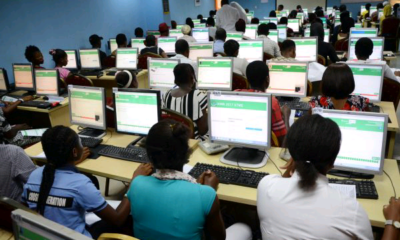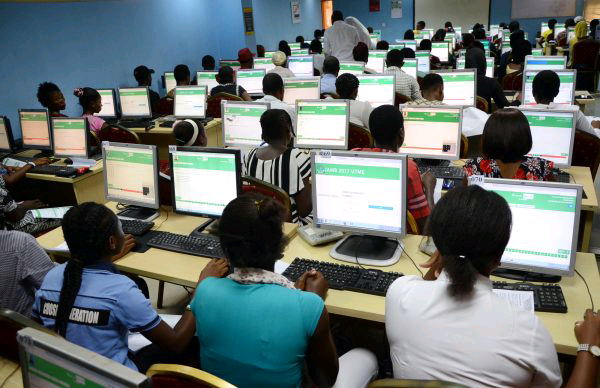Minister of Finance, Budget, and National Planning, Mrs. Zainab Ahmed, has said that there is no provision in the 2021 Budget to fund the acquisition of COVID-19 vaccines.
The minister, during a virtual presentation of the 2021 Budget in Abuja, however, explained that the federal government is working on the type and quantity of COVID-19 vaccines to procure, while her ministry and the Ministry of Health will meet to finalize an amount to be allocated to vaccine procurement within the next two weeks.
Also, the 2020 Finance Act recently signed into law by President Muhammadu Buhari has exempted workers within the minimum wage bracket of N30, 000 from personal income tax.
The Act, which amended no fewer than 14 different fiscal laws, now extends the implementation of the Public Procurement Act to the National Assembly and the judiciary.
Nigeria is expected to receive about 100,000 doses of the Pfizer and BioNTech approved COVID-19 vaccines by the end of January.
In addition, the country, under phase two of its COVID-19 vaccination scheme, will get 42 million extra doses of vaccines through the COVAX facility.
The federal government is targeting to vaccinate about 40 percent of Nigeria’s population in 2021.
Ahmed expressed the commitment of the National Assembly to provide a supplementary budget for additional spending on COVID-19 vaccines if needed.
She said: “We agreed that the effort needed to be done so that we have clarity as to whether the provisions in the budget will be adequate or we have to make additional provisions by way of a special supplementary budget to make more provisions for COVID-19 vaccinations.”
Responding to a question on whether there was a provision for fuel subsidy in the 2021 budget, Ahmed stated that no such provision was made for it.
She also foreclosed subsidy on electricity due to the recent suspension of the hike in the electricity tariff.
The minister, however, added that the Finance Act, among others, exempts workers within the N30,000 minimum wage bracket and below from personal income tax deductions.
According to her, another key provision in the Act is the exemption of all micro and small companies earning N25 million or less as annual turnover from paying the Tertiary Education Tax.
In addition, the Act excluded commercial airline tickets, commercial aircraft spare parts and components; interests in land and buildings; animal feed and hire, rental or lease of agriculture equipment for agricultural purposes from a 7.5 percent Value Added Tax (VAT) charge.
She said: “The key guiding principle of the Finance Act 2020 is to ensure that there is a balance between broader macroeconomic strategies to attract investment, grow the economy, create jobs as well as provide immediate fiscal strategies for accelerated domestic revenue mobilization, in response to the COVID-19 pandemic and the domestic/global economic downturn.
“Specifically, the Finance Act 2020 adopts counter-cyclical fiscal policies in response to the COVID-19 pandemic by providing fiscal relief for taxpayers; reforms fiscal incentive policies to prioritize job creation and accelerate economic recovery and growth; and fosters closer coordination of monetary, trade and fiscal policies.”
Ahmed added that the 2020 Finance Act also provided for the establishment of a N500 billion crisis Intervention Fund as well as other sources approved by the National Assembly to fund the federal government’s expenditures.
Proceeds from unclaimed dividends of listed companies and unutilized amounts in dormant bank accounts outstanding for six years or more will also be channeled to the fund.
The unclaimed dividends and bank balances are subject to a perpetual trust to be managed by the Debt Management Office (DMO), with the governing council to be chaired by the finance minister and co-chaired by a nominee from the organized private sector who is of impeccable integrity and reputation.
Ahmed, however, added that genuine beneficiaries will be able to claim their funds back from the federal government at any time.
Speaking on the performance of the revised 2020 Budget, the minister said the federal government expended a total of N1.8 trillion on the execution of capital projects.
According to her, N1.8 trillion represents about 89 percent of the total provision for capital projects.
She explained that out of the amount spent, N118.37 billion was released for COVID-19-related capital expenditure.
Ahmed said while the federal government projected N9.97 trillion expenditure for 2020, it spent about N10.08 trillion, representing 101 percent performance.
Debt service, she also stated, gulped N3.27 trillion while personnel cost, including salaries and pensions, accounted for N3.19 trillion.
On the key assumptions of the 2021 Budget, the minister said the parameters were arrived at after a careful analysis of external domestic trends.
She noted that the crude oil price benchmark was retained at $40 per barrel although the World Bank forecasts $44 per barrel average crude oil price in 2021.
She added that crude oil production is projected to increase from 1.80 million barrels per day (mbpd) in 2020 to 1.86mbpd in 2021, as economies recover from a recession, and moderated by the Organisation of Petroleum Exporting Countries (OPEC) quota agreements.
Ahmed stated that the aggregate revenue available to fund the N13.5 trillion 2021 budget is projected at N7.99 trillion (36.9 percent higher than the 2020 projection of N5.84 trillion).
To promote fiscal transparency, accountability, and comprehensiveness, she said the budgets of 60 Government-owned Enterprises (GOEs) are integrated in the federal government’s 2021 Budget proposal.
“In aggregate, 30% of projected revenues is to come from oil-related sources while 70% is to be earned from non-oil sources. Overall, the size of the budget has been constrained by our relatively low revenues,” she added.
According to her, the 2021 aggregate federal government expenditure (inclusive of GOEs and project-tied loans) is projected to be N13.59 trillion, which is 25.7 percent higher than the revised 2020 Budget.
Also, the recurrent (non-debt) spending is estimated to amount to N5.99 trillion, representing 44.1 percent of total expenditure, and 13.3 percent higher than the 2020 revised estimates (mainly reflecting increases in salaries and pensions).
The minister also explained that the deficit of N5.6 trillion will be funded via domestic and external borrowings of N2.34 trillion apiece.
She said N2.5 billion is also expected as privatization proceeds.
The budget also has an aggregate capital expenditure of N4.37 trillion or 32.2 percent of total expenditure, which is 62.9 percent higher than the 2020 Revised Budget, inclusive of the capital component of statutory transfers and GOEs.
At N3.32 trillion, the provision for debt service for 2021 is 24.5 percent of total expenditure and 12.6 percent higher than the 2020 revised budget.
The minister also put the provision to retire maturing bonds to local contractors/suppliers at N200 billion.

 BIG STORY5 days ago
BIG STORY5 days ago
 BIG STORY20 hours ago
BIG STORY20 hours ago
 BIG STORY5 days ago
BIG STORY5 days ago
 BIG STORY4 days ago
BIG STORY4 days ago
 BIG STORY2 days ago
BIG STORY2 days ago
 BIG STORY5 days ago
BIG STORY5 days ago
 BIG STORY19 hours ago
BIG STORY19 hours ago
 BIG STORY22 hours ago
BIG STORY22 hours ago
























